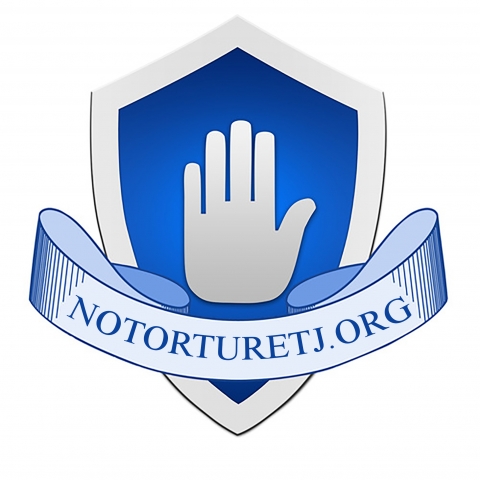Freedom from Torture
Civil Society Coalition against Torture and impunity in Tajikistan

The Convention against Torture and Other Cruel, Inhuman or Degrading Treatment or Punishment (Convention against Torture) came into force in Tajikistan on 10 February 1995. By acceding to the treaty, the authorities of Tajikistan pledged to protect everybody under their jurisdiction from torture and other forms of ill-treatment, to reflect in law and practice the principles enshrined in the Convention, to cooperate with the Committee against Torture and to implement its recommendations.
But twenty years later, torture and impunity for it remain widespread in the country. From 2011 to 2014, members of the NGO Coalition against Torture in Tajikistan documented more than 100cases of men, women and children who were allegedly subjected to torture or other ill-treatment. Perpetrators were brought to justice only in exceptional cases. The human rights groups jointly issuing this statement believe that many victims of torture did not file complaints for fear of reprisals.
Heightened international attention to torture in Tajikistan in recent years and thorough study of the situation by international human rights bodies and mechanisms including the Committee against Torture and the Special Rapporteur on torture and other cruel, inhuman or degrading treatment or punishment (Special Rapporteur on torture) resulted in the issuing ofa set of recommendations to the authorities.
On the twentieth anniversary of the treaty entering into force in Tajikistan, the human rights groups jointly issuing this public statement published a briefing, entitled “Tajikistan needs to do more to end torture,” which provides an up-to-date overview of the current situation of torture or other forms of ill-treatment, including in the army.
Noteworthy positive steps taken by Tajikistan in recent years include introducing an article on torture in the Criminal Code (Article 143) with a definition of torture that is in line with that contained in the Convention against Torture. As a result, by 2014, four criminal cases under this article were opened;and the courts ordered compensation to the families of two men who had died as a result of torture.
The briefing identifies serious gaps and weaknesses in the legislative and institutional frameworks. It highlights practices that continue to facilitate widespread torture and virtual impunity for the perpetrators in Tajikistan. Among other issues, it focuses on the lack of sufficient legal safeguards accessible to detainees in pre-trial detention and the need to routinely implement existing ones; the lack of an independent mechanism to investigate torture allegations; and the need for regular, independent, unannounced and unrestricted visits to inspect detention facilities across Tajikistan.
Among dozens of cases of ill-treatment documented by NGOs in Tajikistan in recent years is the case ofSamandar Jalolzoda.The young man was reportedly suddenly grabbed by police officers and dragged into a police car as he was waiting for his grandfather on a street in his home town of Panjakent in the evening of 4 December 2014. When the grandfather walked up to the police car asking why they had detained his grandson, an officer started the car abruptly and allegedly hit him with such impact that he fell over and sustained bleeding injuries. Police took Samandar Jalolzoda to Panjakent City police station, where officers reportedly hit him with a water bottle and kicked him in an office on the third floor. Thanks to an intervention by Samandar Jalolzoda’s father, police let his son walk free the same evening without charges. On 5 December, Samandar Jalolzoda wrote a complaint about the police ill-treatment, which his parents personally delivered to Sugd Regional Prosecutor's Office the same day. A forensic medical expert examined Samandar Jalolzoda on 10 December and recorded injuries to his body. On 7 January 2015, Panjakent City Prosecutor's Office informed Samandar Jalolzoda that no criminal case would be opened into his allegations of ill-treatment. A complaint prepared by his lawyer against this decision is currently pending with Sugd Regional Prosecutor's Office.
It is clear that Tajikistan must do more to eradicate torture. The authorities should mark the twentieth anniversary of the Convention against Torture’s coming into force by ensuring that the case of Samandar Jalolzoda is investigated thoroughly, impartially and independently and that anyone found to be responsible for ill-treating him is brought to justice. In addition, the authorities should act on the recommendations included in the briefing “Tajikistan needs to do more to end torture” as a matter of urgency.
For further information, please contact:
the NGO Coalition against Torture in Tajikistan: notorture.tj@gmail.com
Anne Sunder-Plassmann, International Partnership for Human Rights (IPHR): +49-40-3863 1458, anne.sunder-plassmann@iphronline.org
Nicole Buerli, World Organisation Against Torture (OMCT): +41-22-809 49 26, nb@omct.org